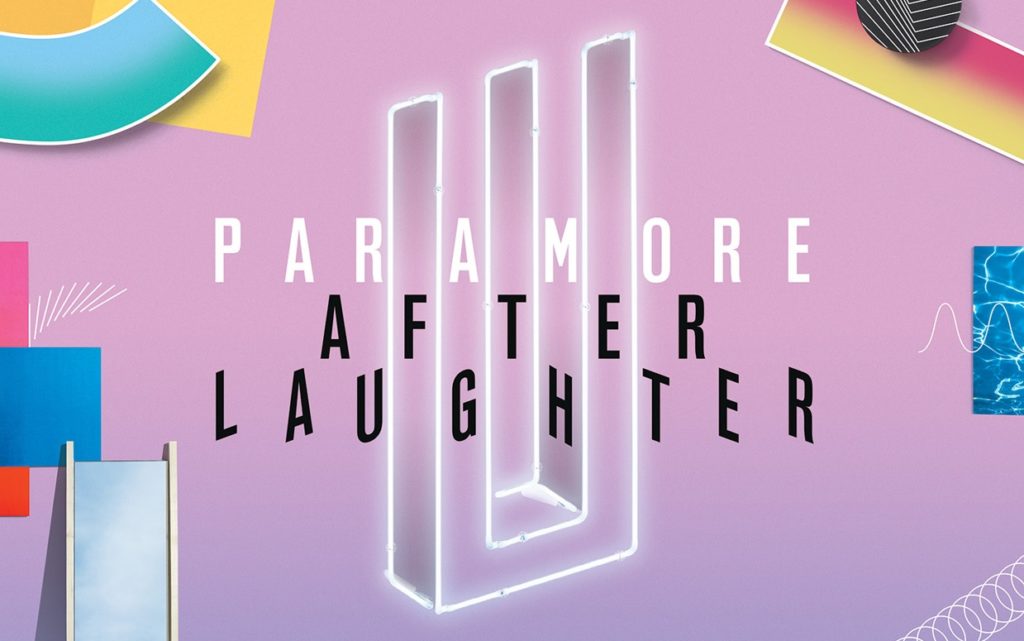Hayley Williams is only 28 years old…yeah, I didn’t know that either. Which means, she was about 16 when Paramore was flung into pop-punk stardom with their debut album All We Know if Falling. Which each passing year and each subsequent release Paramore’s sound, attitude, and lineup have seen some big changes. The layman wouldn’t know though because Williams, is clearly the star here. I don’t say that to deride the boys that have been in the band, I say it because that’s what the public sees. Williams’ voice both figuratively and literally has driven millions to see them over the years. That voice has always been honest and open about personal struggles and has always weaved the depressing with a spark of hope. On the surface, After Laughter is a seismic shift in sound, but what’s underneath that sound is the most personal and self-aware album of Paramore’s career.
Sass has always been a core feature of Paramore’s schtick. From, “Misery Business”, to “Playing God”, to “Ain’t It Fun”, Williams has always been quick to stand her ground and be brash to the subjects of her songs. The songs carry a brand of empowerment that is inherently appealing, especially coming from a female lead. Williams has also dipped into self-reflection throughout her career, but from the very first line “All that I want is to wake up fine”, After Laughter flips the script on what it means to be a strong woman in rock. The second line, same song, “Tell me that I’m alright, that I ain’t gonna die”, she sings, on Hard Times, the lead single from an album full of phrases just like these. Apparently, since their self-titled fourth album, Williams has spent a lot of time looking in the mirror and it has directly affected the message of Paramore’s music.
Throughout After Laughter (which is the perfect album title by the way), Williams critiques her mental state, her behavior, her own happiness, and even her availability to others. She is so open about herself and her struggles that even when the lyrics say she’s singing to someone else, it feels like she could be singing to herself. “Fake Happy” does a great job of putting After Laughter into the context of her career. “I been doing a good job of makin’ ’em think I’m quite alright, Better hope I don’t blink, You see, it’s easy when I’m stomping on a beat, But no one sees me when I crawl back underneath”. She sings these lyrics like she’s dead tired of putting on the show, like she’s exhausted from being the icon that young women look up to, like she just wants her humanity to show and that’s exactly how it comes off.
Ironically, by letting her guard down, Williams has created even more of a reason to idolize her. I don’t want to make this into a feminist piece, but it’s hard not to when the themes are staring you square in the face. To date, the Williams we have seen has been the take-charge, I can do anything, don’t get in my way, I always have something to say, type of woman that’s easy to stand behind and champion. What we have here, is a woman demonstrating that there’s more to being a leading lady than being the confident mouthpiece of a loud rock band. Part of setting the right example is showing the multifaceted process of aging, growing and ultimately understanding who you are.
If I were to paint in broad strokes and put a theme behind each Paramore album, they would be as follows.
All We Know Is Falling – Me Too
Riot! – Take Charge
Brand New Eyes – Weather the Storm
Paramore (s/t) – Shine Bright
After Laughter – Know Thyself
These themes are synonymous with growing up, understanding life and where you fit into it. Where the real gem is here, is Williams’ willingness to go all-in on her struggles with depression and insecurity. She is literally the biggest female name in the rock music, but she has the same struggles as any person you see on the street and she’s found a way to channel that vulnerability into songs that still sound distinctly Paramore-ish. Sonically it has a quirk to it that the band has never had before, and Williams sounds like she believes everything she is singing. After Laughter is the kind of album the artist will look back on in 20 years and remember how therapeutic putting it together was.
Is it the best Paramore album? No, definitely not, but It might be the most important one. Those of us that have been on the wagon since 2005 might not have wanted this album, but it might be the album we needed from the band. By openly teaching us to question ourselves and to know that it is ok to not be ok, Paramore just turned from Superman into Batman and ultimately it has caused a surprising re-evaluation of their entire catalog. Regardless of how you feel about 80’s-Style New Wave Synth-Pop.
Verdict: An album this personal and revealing could have been Dubstep Power Polka and its themes would still resonate.

